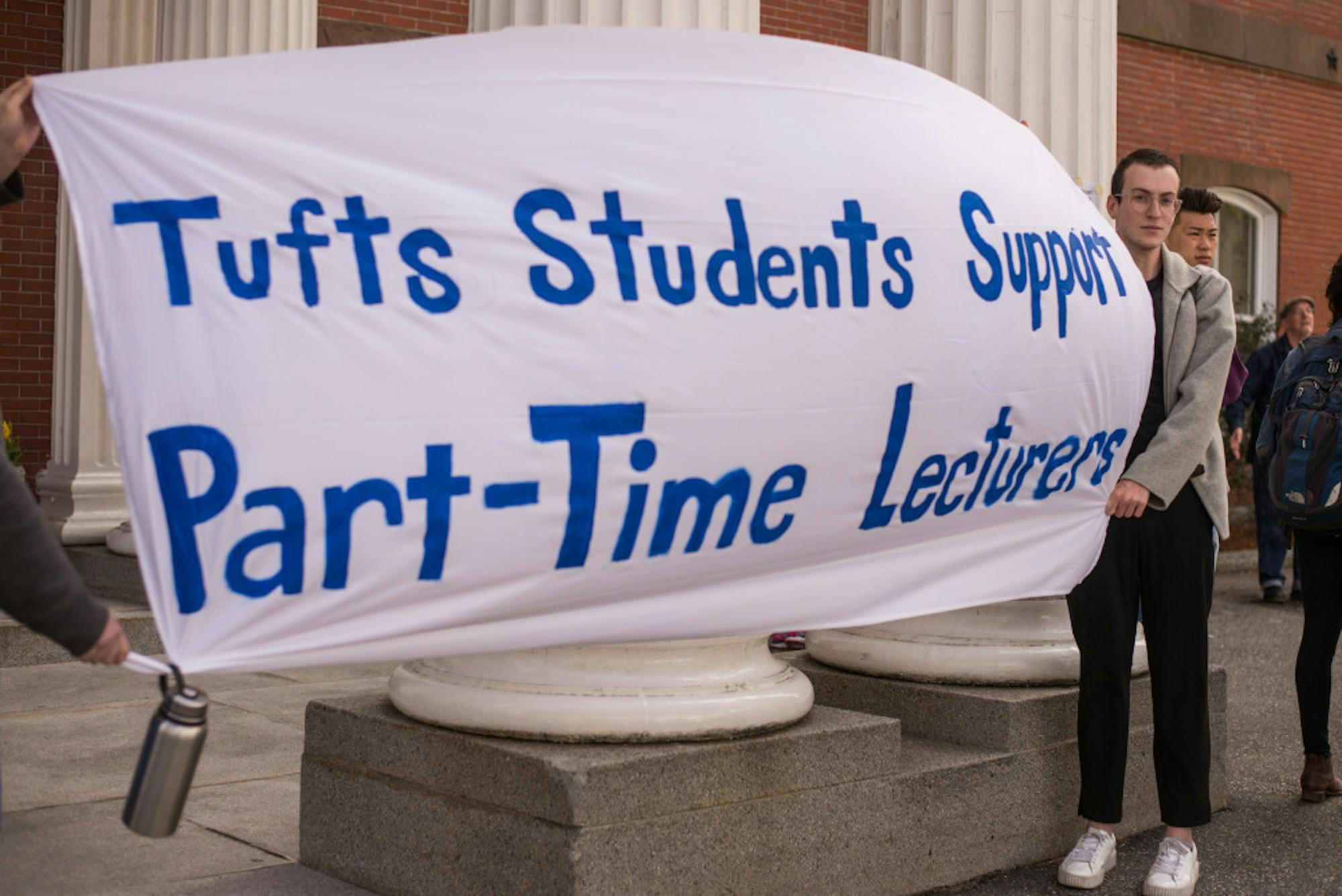Negotiations between adjunct faculty and the Tufts administration appear to have reached a stalemate. According to Andy Klatt, a part-time professor in the Department of Romance Languages and a member of the faculty's bargaining committee, the bargaining agreement was originally set to expire on June 30, but a series of disagreements between the negotiating parties have pushed back the deadline to Oct. 16.
With the extension, adjunct faculty will continue working under the three-year contract originally negotiated in 2014, Klatt said. Negotiations were already extended to Aug. 31 before they were pushed to October.
Klatt added that the deadlock in discussions resulted from disagreements regarding how to move forward from the benchmarks set by the first contract, which guaranteed part-time and non-tenured instructors increases in wages and benefits.
According to Klatt, the bargaining group failed to reach agreements with the administration due to what he felt was the administration's inability to compromise.
Patrick Collins, executive director of public relations at Tufts, conveyed optimism for the fate of the negotiations in a statement emailed to the Daily.
“Labor negotiations in general can take time because of the complexity of issues being discussed by the parties. We remain hopeful that we will soon reach agreement with the Service Employees International Union (SEIU),” Collins said, referring to SEIU Local 509, the Massachusetts union that represents Tufts’ adjunct instructors.
In a separate email, he praised the part-time faculty.
“We respect the work that our part-time faculty do for Tufts and their contributions to our educational mission,” Collins said. “Our negotiations with the union have been characterized by a spirit of professionalism and cooperation.”
Collins offered comment in lieu of Dean of Academic Affairs for Arts and Sciences Bárbara Brizuela, who is representing the administration during the negotiations.
Klatt said that faculty have agreed to third-party mediation, proposed by the university, which will be performed by the Federal Mediation and Conciliation Service.
According to Klatt, the bargaining committee and SEIU are hoping to meet with the administration at least once more within the next six weeks in order to be able to reach an agreement. Should that outcome not be reached, the contract will expire on Oct. 16.
But Klatt noted that the negotiations may go more smoothly than they did during the summer now that the fall semester has begun.
“In education in general, it’s always difficult to negotiate over long vacation time,” Klatt said. "People travel, people’s minds are on other things.”
According to Klatt, negotiating parties had not met since mid-June.
Klatt said that the two parties could not achieve a sense of "momentum" in discussions, leading to the initial decision to postpone the first CBA's expiration to Aug. 31.
In April, Klatt told the Daily the bargaining committee's goals were to improve job stability for contingent faculty by guaranteeing a certain number of courses per semester, expand some of the original contract’s protections to faculty who have served for under five years and secure pay increases “commensurate with [the] cost of living.”
Tufts Labor Coalition (TLC) member Nicole Josephreported that recent contract negotiations did not improve on the shortcomings she saw in the original contract. Joseph, a senior, was concerned that the contract’s grievance process, which allows adjunct faculty to redress complaints, would be partly stripped.
Another TLC member, Zoe Schoen, described the current deadlock as indicative of what she saw as the low priority placed on adjunct instructors by the university.
“To be sure, the allocation of university funds is complicated and I don’t pretend to understand the nuances of that process,” Schoen, a junior, said. “But it is deeply problematic to me that I watch money pour into the construction of new buildings and facilities all around me, while the very people who will facilitate learning within those walls go without basic forms of support and care.”
Negotiations between part-time faculty, administration in standstill

20/04/2017 - Medford/Somerville, MA - Ben Kesslen holds a sign at the Tufts Labor Coalition action in support of adunct faculty on April 20, 2017.





